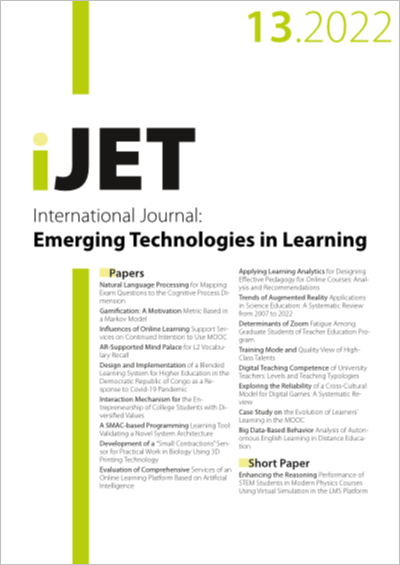Development of a “Small Contractions” Sensor for Practical Work in Biology Using 3D Printing Technology
DOI:
https://doi.org/10.3991/ijet.v17i13.30871Keywords:
Computer assisted Experiment, 3D printing technology, practical works in biologyAbstract
This article presents the development of a “small contraction” sensor fabricated using 3D printing and intended for practical works of biology; with the aim to replace the traditionally used system. This fabricated sensor is then integrated into a Computer Assisted Experiment (CAE) environment. CAE is a teaching technology that allows the students to carry out the acquisition and the processing of their data on computer (saving, adding comments, amplification…). The combination of these two technologies (CAE and 3D printing) has made it possible to equip low-cost multipurpose labs requiring minimal maintenance and where the work space is standardized. The result of a survey conducted with the students at the end of the lab sessions shows that 79.1% of them prefer the use of the new system, given the advantages it offers in terms of better understanding of the practical works objectives, time saving and the data processing functionalities it provides.
Downloads
Published
How to Cite
Issue
Section
License
Copyright (c) 2022 Samia ACHOUCH, Nezha BOUHADDOU, Rihab BOUSSETA, Pierre NONNON, Mohammed Khalid TAGHZOUTI, Mourad GHARBI

This work is licensed under a Creative Commons Attribution 4.0 International License.



